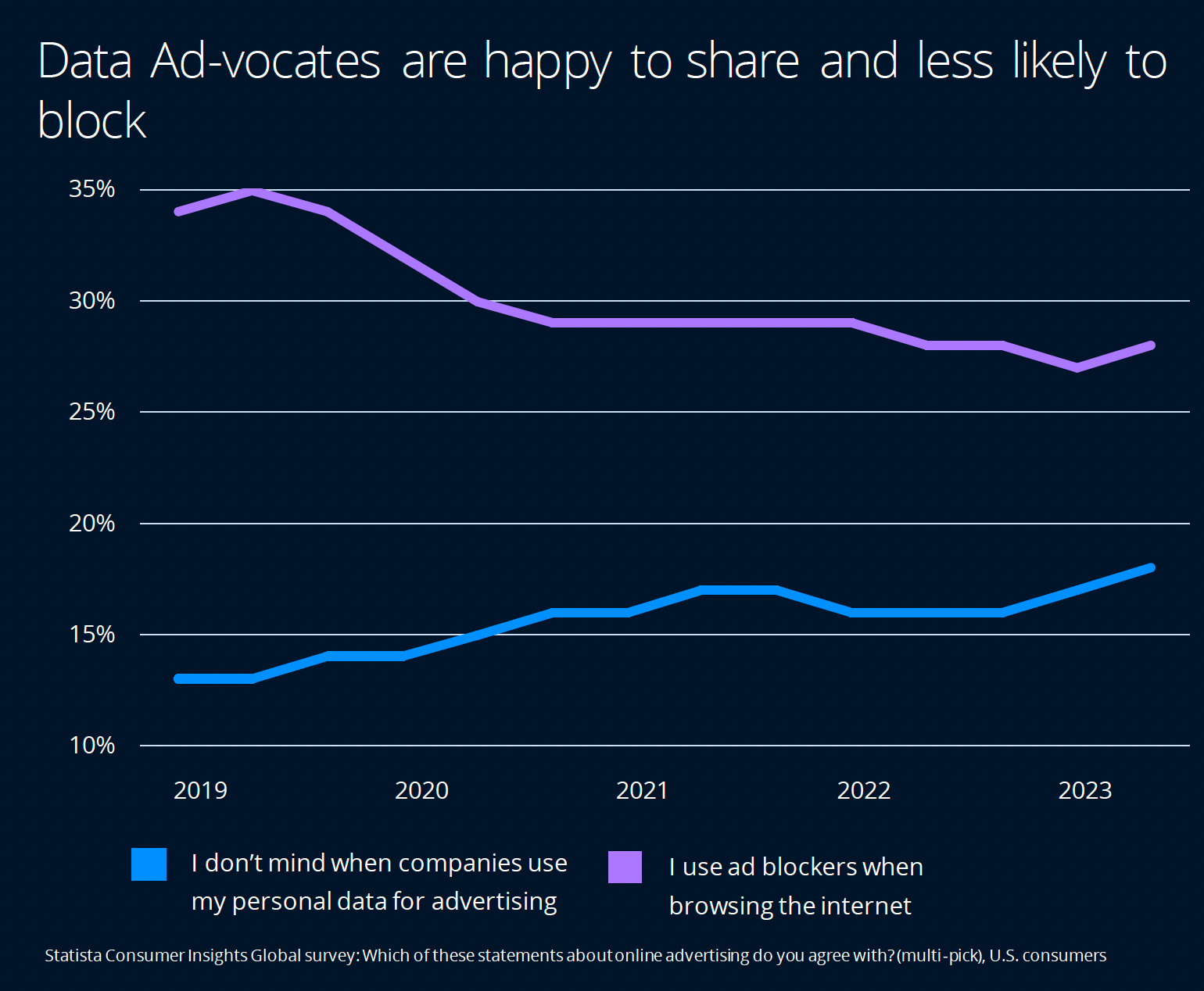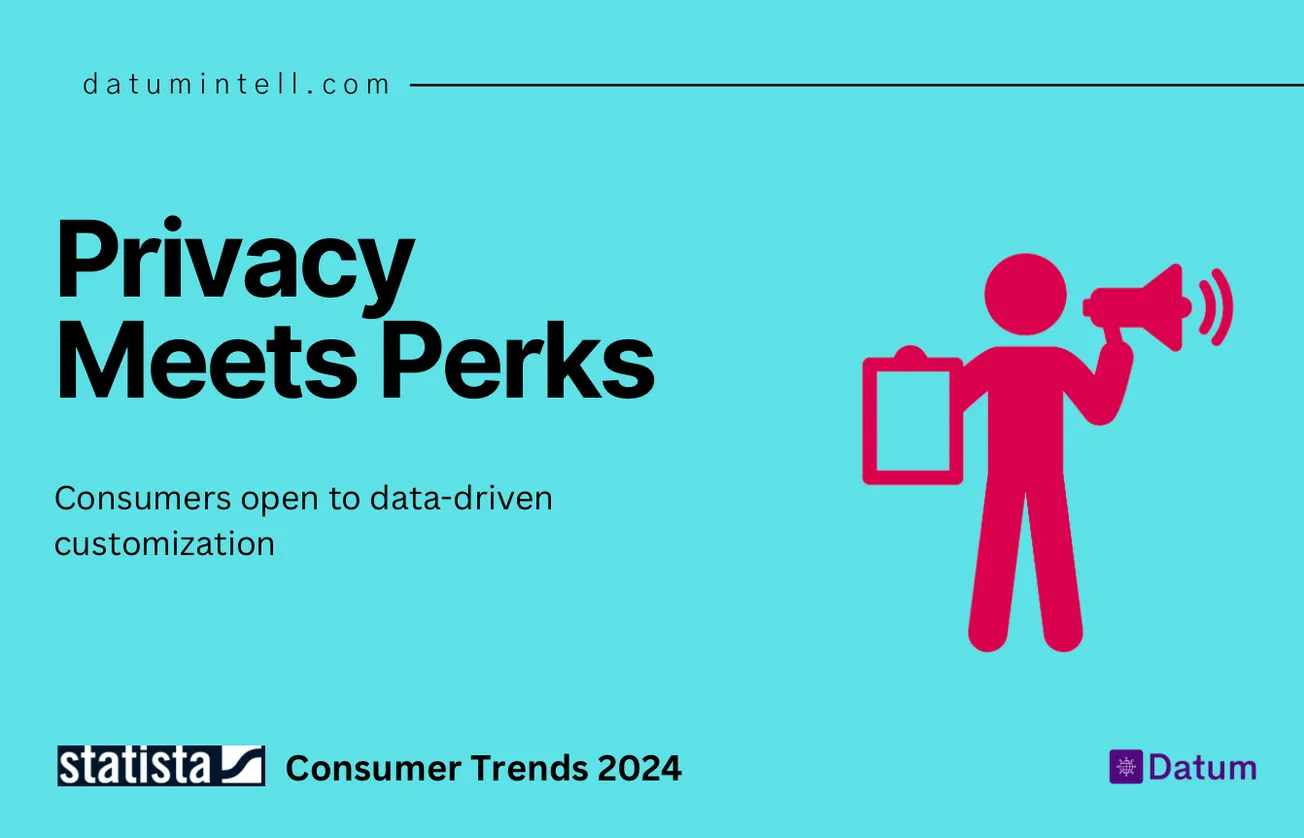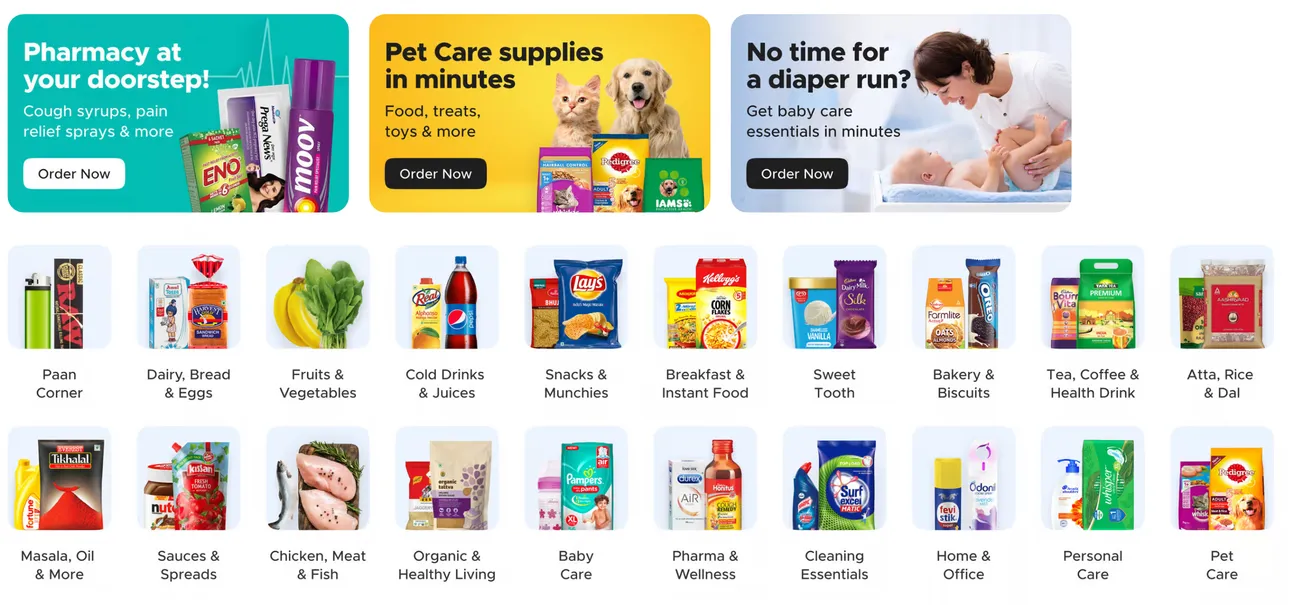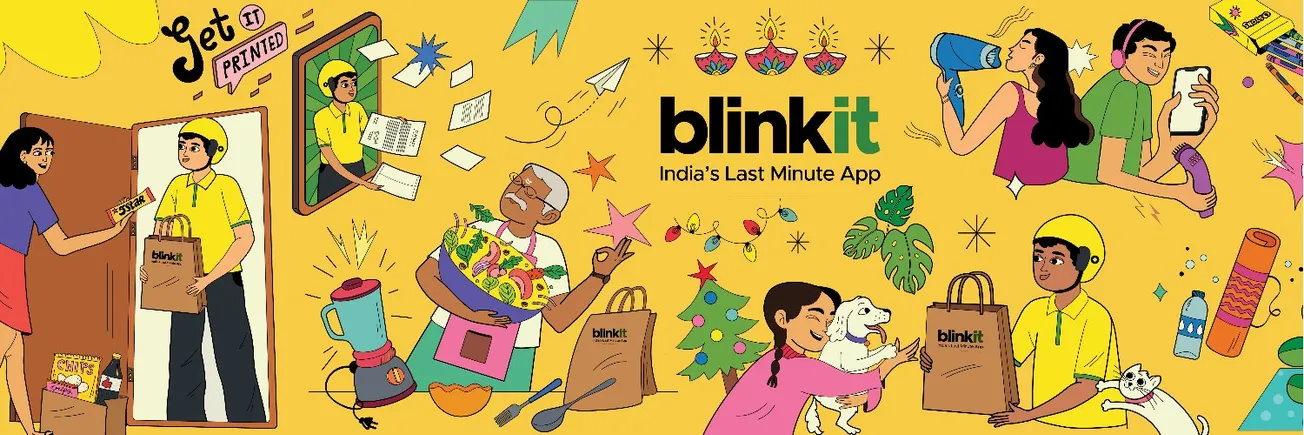Table of Contents
Tired of seeing ads for things you'll never buy?
Imagine this instead: you see an ad for the perfect hiking boots just as you're planning a trip, or discover a new recipe for your favorite cuisine while scrolling through your phone.
That's the power of personalized ads! ✨
Instead of getting the same old boring ads everyone else sees, you get ones that are relevant to you and your interests. This means no more lawnmower ads if you live in a tiny apartment, and no more baby clothes if you're not planning on having kids anytime soon.
Of course, some people worry about sharing their information with companies.
But just like you wouldn't tell a complete stranger your favorite hobbies, you can control what data you share for personalized ads.
Think of it like this: you give the ad company a little bit of information (like your love for hiking or cooking), and they use it to find you the best deals and coolest new things. It's a win-win!
So next time you see an ad that's actually relevant to you, don't be surprised. It just means someone is paying attention to what you like, and that's never a bad thing.
Findings of Must Watch Consumer Trends for 2024 by Statista
From Irritation to Appreciation
In 2019, U.S. consumers would get annoyed by intrusive online ads like pop-ups, auto-play videos, and irrelevant promotions. But now we see a substantial decline in this annoyance. Consumers have come to appreciate more tailored and relevant advertisements, resulting in a more positive perception compared to the past.
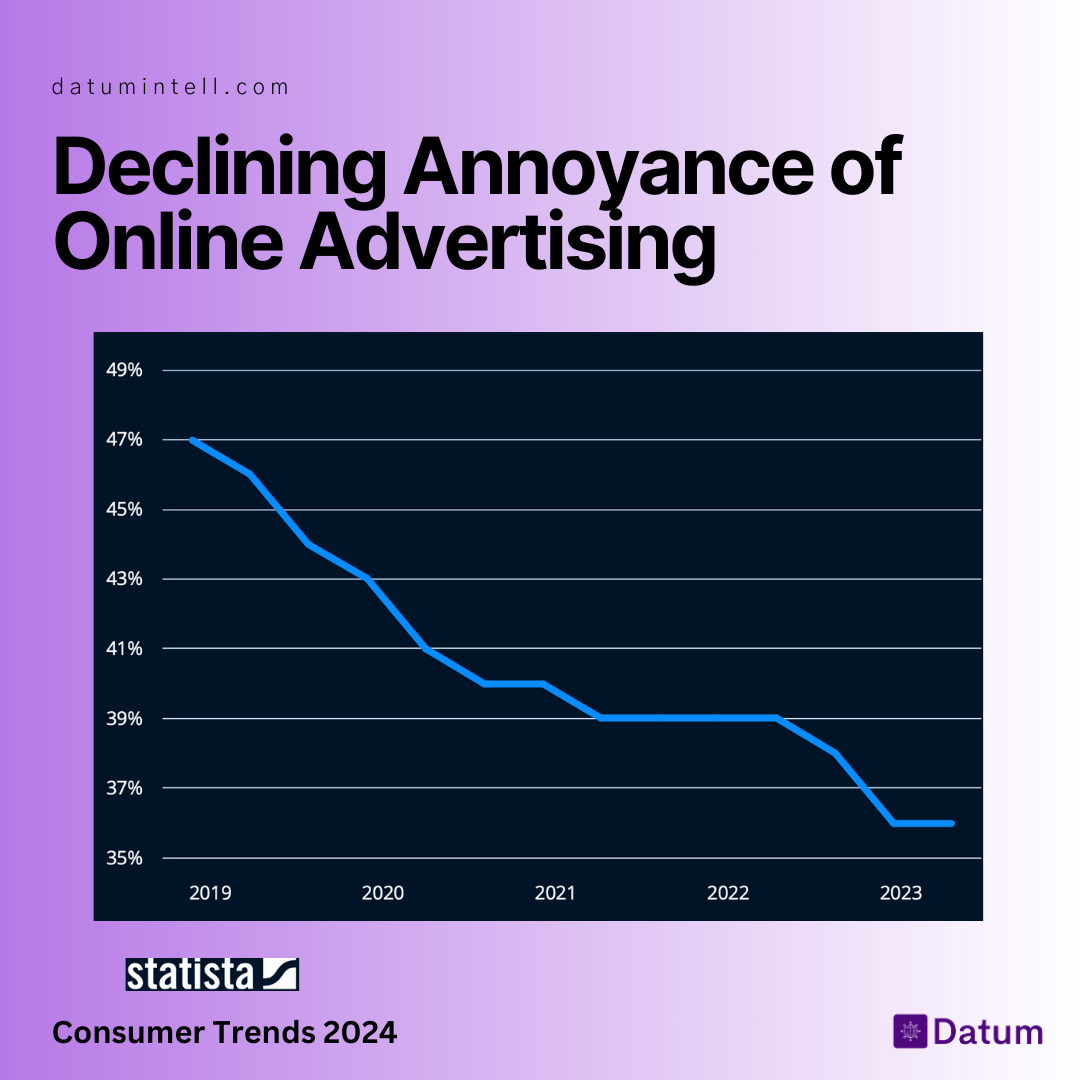
Easing Data Collection Concerns
Targeted ads and customized online content are no longer a major irritant for consumers.
Gone are the days of cringing at every cookie-cutter ad. Consumers are cautiously warming up to the idea of targeted ads and customized online experiences – the allure of perfect recipe recommendations and hidden travel gems outweighing the initial "ick" factor.
It's not a blind embrace, though. Privacy concerns linger, and companies must walk a tightrope – relevant content without the creep factor. Those who nail it? Brand loyalty and happy customers.
Users in Brazil are least annoyed watching online ads based on search history followed by the US and India.
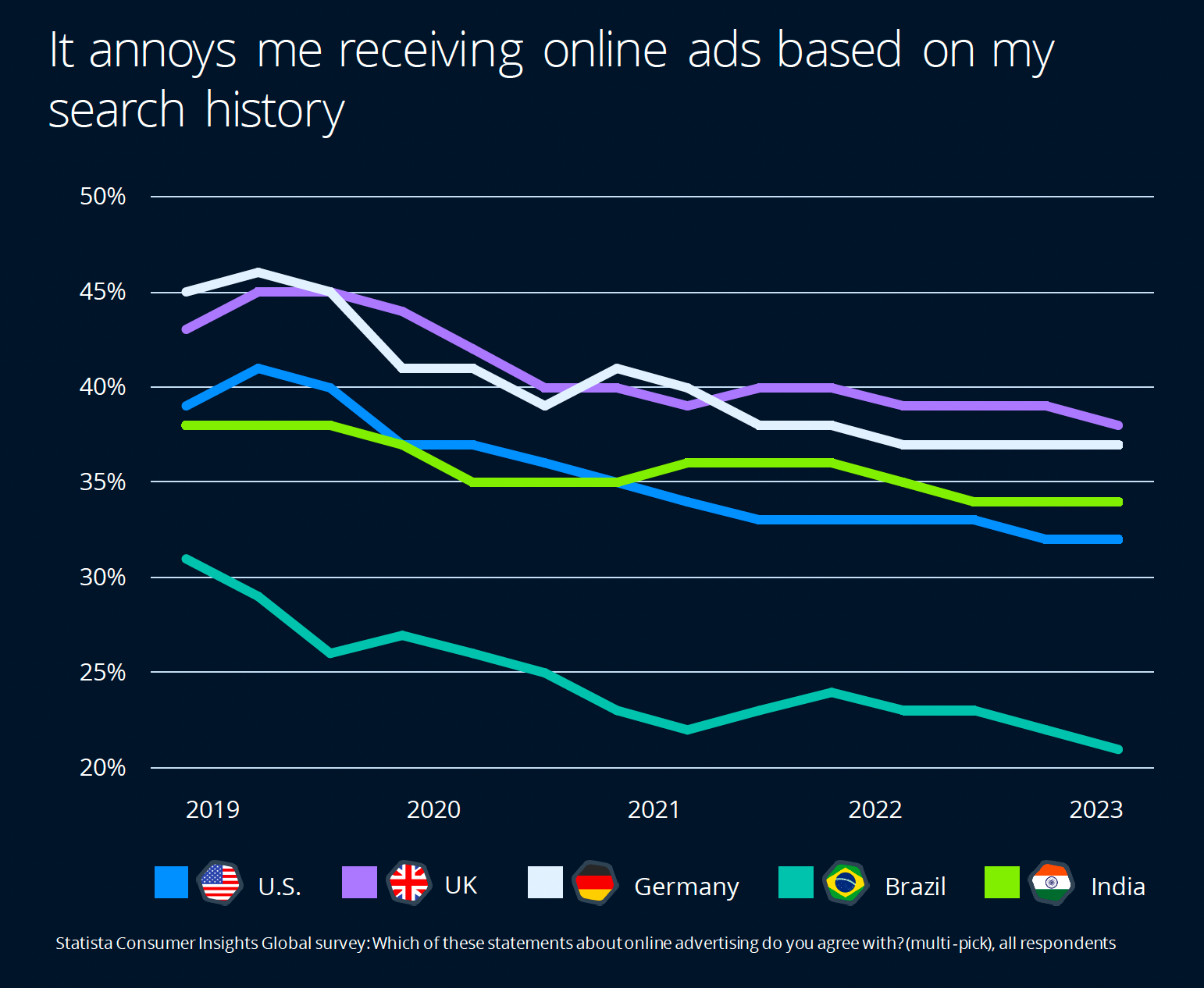
Easing data collection concerns and decline in adblocker usage
U.S. consumers are more open to the idea of businesses using their data to provide hyper-personalized advertisements, around only 30% state that they find this annoying. The benefits of this approach, such as tailored recommendations and a smoother shopping experience seem to have won them over.
Adblockers, once the go-to solution for consumers seeking respite from unwanted ads, were utilized by over a third of consumers in 2019.
By 2023, the prevalence of adblockers has decreased. U.S. consumers are less inclined to use them, as they increasingly appreciate the benefits of personalized ads that align with their interests.
